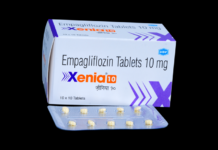Gurugram, September 02, 2019:
- ESG (Endoscopic Sleeve Gastroplasty), an advanced, cost-effective, one-of-its-kind, non-invasive daycare procedure for obesity
- A 34 years old male from Rewari treated successfully and discharged in less than 48 hours
Artemis Hospital, Gurugram has become the first hospital in North India to introduce Endoscopic Sleeve Gastroplasty (ESG), a newer and revolutionary non-invasive procedure to treat obesity. It’s performed to help to lose weight and potentially lower the risk of serious weight-related health problems. Recently Artemis Hospital treated north India’s first patient, a 34 years old from Rewari, Jatin (name changed) who had obstructive sleep apnea and hypertension. The treatment went successful and Mr. Jatin was discharged within 48 hours.
Endoscopic sleeve gastroplasty (ESG) is a newer type of weight-loss procedure. ESG reduces the size of your stomach using an endoscopic suturing device without the need for surgery. It is performed to help you lose weight and potentially lower your risk of serious weight-related health problems, including, Gastroesophageal reflux disease, heart disease and stroke, high blood pressure, sleep apnea and type 2 diabetes.
Considering the patient’s severe condition, the team of doctors led by Dr. Atul Sharma, Senior Consultant at Artemis Hospital decided to apply the ESG (Endoscopic Sleeve Gastroplasty) procedure. The treatment is so convenient with such high the success rate that he was discharged within 48 hours of procedure and resumed his normal routine life.
Dr. Kapil Jamwal, Head Gastroenterology Unit, Artemis Centre of Excellence for Digestive and Liver Diseases said, “ESG is a daycare procedure in which a flexible tube with endoscopic suturing a device attached is inserted into the stomach through mouth and fat is taken out. With no operative complications involved, the process is cost-effective. The entire process takes approximately 90 minutes with no anaesthesia required and the majority of patients can go home the same day. It reduces the size of the stomach with the endoscopic device without surgery. Apprehensions regarding cuts, surgeries and scars are no more involved in the treatment of obesity.”
The team of Dr. Atul Sharma, Senior consultant and Clinical Lead in Motility, UBD and Third Space Endoscopy, Dr. Kapil Jamwal, Head of the Gastroenterology Unit, Artemis Hospital, Gurugram and Dr. Rajesh K Padhan, Senior Consultant and Clinical Lead in Hepatology and Pancreas at Artemis Hospital have brought this ESG treatment for the first time in North India.
Elaborating further Dr. Jamwal said, “ESG is the future of bariatric and metabolic endoscopy for patients with or without comorbidities. ESG has minimal or no side effects leaves no scars or sutures on patients and can be done in patients who are not fit for Laparoscopic Sleeve Gastrectomy and bariatric surgery. The procedure is presently being done in a few centres across India and we are proud to introduce the procedure for our patients across north India.”
This treatment is common in the USA but now through Artemis Gurugram, Delhi and NCR population and others will also be benefitted. Till now the most common procedure done for obesity worldwide is Laparoscopic Sleeve Gastrectomy but it has its own limitations. Obesity can now be treated with a new endoscopic procedure which is Endoscopic Sleeve Gastroplasty or ESG, in this procedure the stomach size is reduced from 60-70% of the original after the passage of the endoscope from the mouth and with the placement of sutures in the stomach. The procedure shows effects over 6 months to 1 year and the patient loses around 60-80% of the excessive body weight.
Obesity has become the biggest epidemic in India with an obese population of 7.5 crores and over 5 crores are morbidly obese. With such a high rate, a treatment like ESG is the most appropriate and feasible treatment option available. According to NFHS (National Family and Health Survey), 2007 data Delhi and NCR had the highest overweight population with 45% in males and 49 % in females. As per the latest report of Obesity Surgery Society of India, the country has seen a 100-fold increase in weight-loss surgeries in the past 15 years, rising from just 200-odd in 2004 to more than 20,000 in 2019. During this period, the number of surgeons who specialize in the surgery also went also went up from eight (in 2003) to 450. Delhi, Punjab, Gujarat, Maharashtra and Tamil Nadu lead in the number of surgeries performed every year.
Newsvoir
























